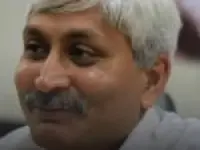
On March 20, the Union electronics and IT ministry had notified the FCU as a statutory body with powers to flag what it believes is false information related to the Central government and its agencies on social media sites.
The Supreme Court”s decision to halt the Centre”s implementation of the Fact Check Unit under the Press Information Bureau came after compelling arguments presented by the legal representatives of stand-up comedian Kunal Kamra and the Editors Guild of India, raising significant concerns regarding the freedom of expression.
The Supreme Court today overturned the verdict of a single-judge bench of the Bombay High Court, which had observed that the establishment of the Fact Check Unit by the Centre would not result in substantial harm. The top court ordered a stay on the notification of Union government designating the Press Information Bureau’s fact-check arm as the Fact-Checking Unit (FCU) under the amended Information Technology Rules of 2023.
The petitioners are concerned about potential censorship, contending that the new IT regulations, which led to the creation of the Fact Check Unit, could inhibit users” ability to freely express themselves on social media platforms.
Senior Advocate Darius Khambata, representing Kamra, challenged the ruling, saying that the new IT regulations would stifle free speech.
According to the regulations introduced last year, if the Fact Check Unit identifies any posts containing false or misleading information to government affairs, it is authorised to alert social media intermediaries. Subsequently, intermediaries have the choice to either remove such content or attach a disclaimer. However, opting for the latter may subject intermediaries to legal consequences.
Khambata said today that social media intermediaries are likely to opt for content removal rather than risk legal repercussions. He argued that the new regulations primarily serve the interests of the Centre.
“It is a question of Caesar judging Caesar. Centre is not a separate class. If the object is to prevent fake news, everyone is affected. Individuals even more,” he said per reports.
He said that elections are in a few weeks from now and the public deserves unfiltered access to government information, not a curated selection deemed “fake” by the Center.
Advocate Shadan Farasat, representing the Editors Guild, argued that the government”s authority to determine the veracity of information directly undermines Article 19(1)(a) of the Constitution, which guarantees the right to freedom of speech and expression.
On March 20, the Union electronics and IT ministry had notified the FCU as a statutory body with powers to flag what it believes is false information to the Central government and its agencies on social media sites.
Farasat highlighted the timing of the Fact Check Unit”s notification, coinciding with the model code of conduct due to the announcement of Lok Sabha election dates. He expressed concerns about the impact on investigative journalism, which heavily relies on diverse sources within the government.
“It is through several sources in the government. Now a central authority will stamp out all other voices. It even impacts the disputed question between Centre and state,” he said.
In response, the government reiterated that the regulations were enacted in the public interest to combat fake news. However, petitioners argue that the scope of “government business” remains vague.
Solicitor General Tushar Mehta spoke about the challenges posed by the uncontrollable nature of the online medium, particularly its borderless reach. He clarified that the regulations would exclusively target misinformation pertaining to government affairs, not political opinions or satire.













